In honor of Women’s History Month, we asked scholars in Governance Studies to reflect on women who have impacted their trajectories as scholars and as individuals. Here are their responses.
I’m a political economist and my Mom, a shrewd observer of politics, was unwittingly very influential in that career choice. But before I was a political economist, I was a pre-med major at U.C. Berkeley. The reason? Dr. Marion Diamond, one of the most pre-eminent neurobiologists of her generation. As a sophomore, I sat in one of her human development lectures. Observing this woman with a wonderful enthusiasm for the mysteries of the brain teach undergraduates who, for the most part, were not as infected by intellectual curiosity as she was, was inspiring. What I absorbed from her lectures and office hours was an intellect that was on fire, that understood the limits of human knowledge of the human brain, and was not going to be constrained in her inquiry by those substantive or societal limitations. I saw someone who was unafraid of ambiguity and who used that acknowledgment of ambiguity to further neuroscience. Although I am not in medicine, she instilled in me a lifelong love of scientific inquiry and a comfort with embracing ambiguity in intellectual endeavors that I believe shapes who I am today. – Camille M. Busette
My college adviser and mentor, Virginia Hettinger, played such an enormous role in my professional development that I am certain my life would be vastly different if I had never met her. As an adviser randomly assigned to me at the University of Connecticut, Virginia saw in me a potential that I could not: that my interest in research was not simply a nerdy hobby, but the foundation for a career in the academy. In just a couple of years, her wisdom, patience, advice, teaching, mentoring, encouragement and example transformed a bewildered first-generation college student into a young man ready to purse a Ph.D. and a career in research.
Virginia led by example, combining a brilliance in conducting research with a sense of caring for the success of those around her—students and colleagues alike. As I departed UConn and went forward with my career, Virginia remained a mentor, and just as importantly, she serves as a true role model. Academia is one more field in which men play an outsized role as recipients of credit and women are undervalued for their hard work and impact. So, it’s my great pleasure to use women’s history month to tip my hat to a spectacular scholar, mentor and person, but for whom I would not be at Brookings writing this piece or any other one. – John Hudak
For those of us of a certain age, there were no women mentors. Even though I went to a prestigious women’s college, the only female professor I had was my freshman English instructor. Given that she once asked me if English was my native language, I knew a career in English literature was not in my future.
Graduate school was no better in terms of women mentors. Women professors were few and far between and not in the fields I was interested in studying. And when I started working in politics the situation was the same: very few women, and certainly none in positions of authority. I didn’t know her back then but I worshipped Alice Rivlin, currently my colleague at Brookings, from a distance. She had been 20 years ahead of me at Bryn Mawr and was the sole example I had of a woman who was leading in a man’s world.
I was keenly aware of the absence of mentors, especially when the guys would go off somewhere together and leave me behind. (I once discovered that they all decamped for lunch—at a topless bar.) Sexual harassment was pretty much constant in a world with no women in positions of power. One learned to discreetly disappear from bars and, as a friend of mine once said about the behavior of Senators on a Codel (short for congressional delegation), you worked hard to avoid being compromised without ever saying no and making someone mad at you.
Growing up in a world without women leaders left me with one particularly bad habit. Back then, if you were the only woman in the room, the men eventually forgot about you and treated you like one of the guys. This meant that they didn’t adjust their language and swore all the time, so I learned to swear—a lot. The more vulgar the better. Many of us who were the first to join law firms, or the first to be nominated for president, were socialized into a man’s world, and we can still unleash a string of “F” words that would make a sailor blush.
Over the years, as more women joined whatever room the meeting was in, I noticed that the men stopped swearing as much. So, as us baby boomers turn into the mentors we never had, we will try to leave the art of pulling together a creative harangue of foul words out of our advice. – Elaine Kamarck
As a young attorney years ago in the Office of the Legal Adviser at the Department of State, I managed a portfolio of issues that required delicate handling of a wide range of difficult legal issues and clients in the Department. My job was to provide legal advice to policymakers implementing foreign assistance programs in the Western Hemisphere, Africa, Eastern Europe, Russia, as well as peacekeeping operations programs worldwide. My supervisor, Assistant Legal Adviser Kitty McManus, not only kept me out of a lot of trouble—she actively guided my development as an attorney. She held me to high standards while communicating her confidence in my ability to live up to those standards. Beyond her official duties as a boss, she helped me navigate the shoals of balancing a career with the demands of new parenthood. She did all of these things for me—and many others—with poise, humor, and respect. I believe her wisdom and counsel shaped me professionally in ways that propelled me into new jobs and promotions. I am forever in her debt! – Margaret Taylor
The three most influential people in shaping my career trajectory and work in education policy analysis are women. I found the first two in my personal life. My mom went to college while I was in middle school, getting a teaching degree and becoming an elementary school teacher at a time when I was coming to understand how adults find meaning in their careers. My wife has spent the last 15 years as a teacher, mentor, and now administrator in urban schools—and a thought partner who has given context and color to my work. And my PhD adviser, Susanna Loeb, is and will always be one of the smartest, most thoughtful people I have known, with a wonderful mix of in-the-weeds technical expertise and forest-for-the-trees perspective to put that expertise to use. I feel incredibly grateful for the three of them and see each in my work—in both why and how I do it. – Jon Valant
I was blessed to have many formative female mentors at various points in my life. That was true in elementary school, high school, college, and beyond. But one of the most important figures was my fifth-grade teacher, Mrs. Madelaine Early. She was an instructor who set high standards for her students and wanted everyone to reach their full potential.
In those days, rural Ohio schools had grade cards that evaluated students on two dimensions: your level of performance along the conventional grading scale and categories for placing those grades in the satisfactory or unsatisfactory level. To me, as a 10-year-old, it was a novel concept that you could earn a B+ but the teacher thought that was unsatisfactory because she knew you were capable of A-level work.
We got graded every six weeks during that academic year and there were several times when she put my B+ grades in the unsatisfactory category. This was the first time a teacher let me know I was capable of better work than what I was doing and that I should not under-perform my ability. It took me awhile to realize the point she was making. But after I figured out her objective, I admired her for setting a high bar and encouraging her students to reach their full potential. It was a lesson that stayed with me for the rest of my life. – Darrell West

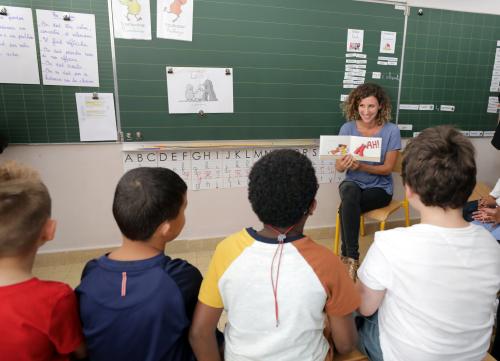
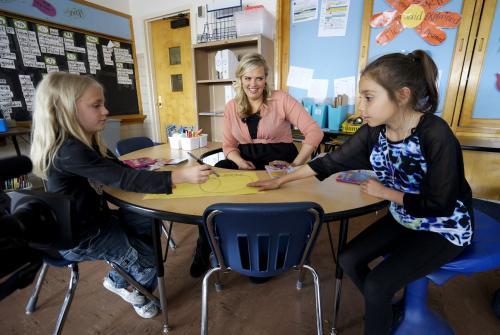
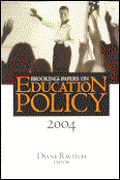
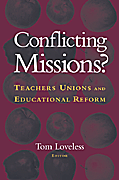
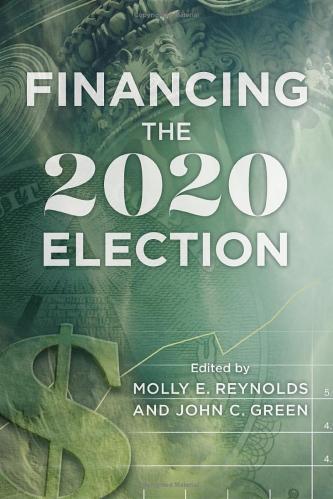
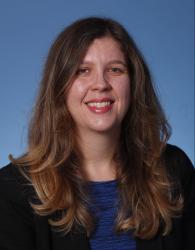



Commentary
Around the halls: Brookings scholars honor women who shaped their careers
March 20, 2019